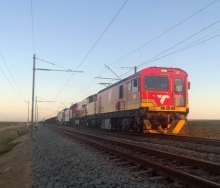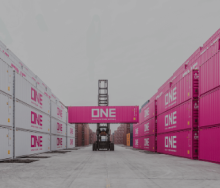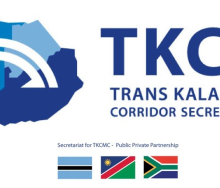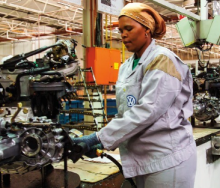The South African Association of Freight Forwarders (Saaff) has outlined a nine-point plan, initiated in the aftermath of last month’s attacks on supply chain concerns, to avoid future disruptions through stakeholder partnerships and progressive prevention methods.
Looking back at what happened in July, when a failed insurrection in KwaZulu-Natal sparked plundering mobs to run rampant through that province and in Gauteng, the industry body is not mincing its words about the deleterious effect of the looting and lawlessness.
In a statement sent out this morning, Saaff says the result has been loss of trust, reputational damage, decreasing investor confidence, and companies choosing to avoid using South Africa’s ports, resulting in the loss of jobs and slow economic growth.
It adds that the subsequent cyberattack on Transnet, which brought South Africa’s ports to a halt and resulted in a virtual standstill for days, is the latest in a series of severe supply chain shocks.
One of the most important actions it took during the disruptions, led to collaborating with stakeholders to restore some normality to the supply chain in several ways.
These resulted in the rollout of the following measures:
1. The Association was instrumental in the establishment of the Supply Chain Security Working Group. Co-chaired by Saaff and the Department of Trade, Industry and Competition (the dtic) and comprising a wide range of stakeholders from both the private and public sectors, the purpose of the working group is to identify solutions to the challenges that supply chains currently face, including the massive gridlock at ports around the country. The working group meets daily to track and monitor progress.
2. Driving the development of a master plan to ensure that contingency plans are put in place where there are none. This will be developed into a strategic, longer-term logistics master plan.
3. Saaff was instrumental in getting a manual process under way at the ports to ensure the resumption of the flow of goods. A detailed standard operating procedure is in the process of being developed. This will provide clear protocols that will be clearly communicated to all the role-players in the extended supply chain. This work will be signed off by Business Unity South Africa – the apex body for business interests in South Africa, as well as Transnet Port Terminals, Transnet National Ports Authority and the SA Revenue Service.
4. Initiating discussions with various stakeholders to ensure that linkages are in place to bring about quick and effective communication and to build capacity for effective decision making.
5. Ongoing lobbying with influencers and government leaders to bring about much-needed action, with a clear understanding of the impact of international and regional supply chains on our fragile economy.
6. Keeping its members up to date with progress made, thereby enabling them to plan ahead, even while cargo is moving or at rest in the different holding areas like container terminals or licensed depots.
7. Conducting interviews with media – both locally and globally – to keep the industry and its customers apprised of the latest news.
8. Offering target-driven, innovative solutions to the supply chain blockages.
9. The Association’s lobbying efforts with other industry associations resulted in more police and SANDF presence at critical hot spots on key corridors.













